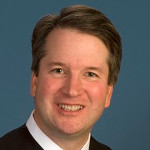By Matthew Prinn
RFP Advisory Group
In most request for proposals that deal with the overall client-law firm relationship (as opposed to a matter-specific RFP), you will see questions asking law firms about “value-added” services. By value-added, they mean free.
In the 2018 Buying Legal Council Survey, the responses were particularly interesting to the question, “What are your preferred value-added services being provided from law firms and legal service providers?” Here’s my analysis of the top five answers, and some things for law firms to consider before agreeing to these conditions.
—–
Hotlines or access to experts for quick questions
This is not a surprising one, as corporate counsel always have found value in the ability to get ad-hoc quick advice without running up a bill. It’s a feature that most firms agree to provide, usually a certain number of hours a month, assuming a certain volume of work from the client.
Most firms don’t have a formal process in place, and often are very reactive to this type of request. What typically happens is the firm notes in the RFP response that it’s willing to do this, and if called upon has a partner take the calls and write-off the time.
This offers a perfect opportunity for firms to separate themselves from competitors by proactively creating an innovative, best-in-class hotline program. They can then arm their lawyers with talking points on how to sell this feature to clients. Firms should consider the most efficient way to structure these hotlines, have a clear understanding of which topics they cover (and which are billable) and identify the most cost-efficient way to service the lines. Just writing off the time isn’t a strategic plan.
—–
Seminars and business-level training
This is another easy one for firms to agree to, as most already have a repository of content online or that they distribute via email. The firms that separate themselves in this area are willing to provide more customization.
Corporate counsel prefer when firms offer to come in and present on topics specific to their industry and business. A firm that is willing to offer four in-person programs a year will stand out compared to one that just points the client to their website of more generic content.
These live or webinar trainings can be great cross-selling opportunities for the law firm if you can strategically introduce lawyers to the client in areas beyond your current work. Firms often respond in an RFP with what they “could do,” but many fail to follow up and implement a program unless pushed by the client.
—–
Secondments
We are seeing more and more RFPs that ask for the law firm’s approach to secondments. Secondments are arrangements in which a firm puts a lawyer “in-house” at the client for anywhere from three months to two years at a significantly reduced rate or for free.
Secondments benefit the client, who gets a dedicated legal resource to develop a deeper knowledge of the company’s business at a bargain price. They also can benefit the firm in leading to better client service and increasing the potential to grow the business with the client.
However, firms need to be careful not to get burned financially. There is no business case to be made for providing a client a “free” lawyer unless you’re certain the short-term financial commitment will result in a positive return in your long-term relationship with the client.
Be careful not to agree to blanket terms in the RFP process, and then be faced with a difficult conversation with a client who thinks it can use a secondment on a senior partner in a complex area of work on any matter. Firms need to ensure they have the flexibility to negotiate secondments on a case-by-case basis with cost dependent on factors such as duration, type of work, and overall fees collected annually.
In short, tread carefully before agreeing to a secondment and be sure it makes business sense for the firm.
—–
Pre-matter planning sessions
The evolution of procurement in the purchase of legal services has driven law firms to provide a project management strategy to clients. Almost every RFP will ask what resources firms have for project management.
Firms must be able to say not just that they have software, but be able to give specific examples and show screenshots of how it’s used. Some firms can even offer non-billable project management staff as a competitive advantage in the bidding process.
Firms should be ready to get involved in the pre-matter planning and partner with the client to best manage the matter. Particularly if working off a fixed fee structure, both the firm and the client should want to keep this value-added piece a priority.
—–
Internal call participation
My understanding of this item is that corporate counsel want firms to be able to join business phone calls or meetings without billing time for the service. It seems fine to agree to this, provided it’s a reasonable amount of time and the expectations are agreed on in advance, including what level of seniority is expected on the calls.
Firms need to be careful not to over-promise and then under-deliver. When negotiating the outside counsel guidelines, firms should be wary of blindly agreeing to such requests and should include language that provides a detailed description of what and whom they would be willing to offer.
—–
Matthew Prinn is a principal with RFP Advisory Group, a consulting company that specializes in the RFP process for corporate counsel and law firms. He can be contacted at mattprinn@ RFPag.com.



